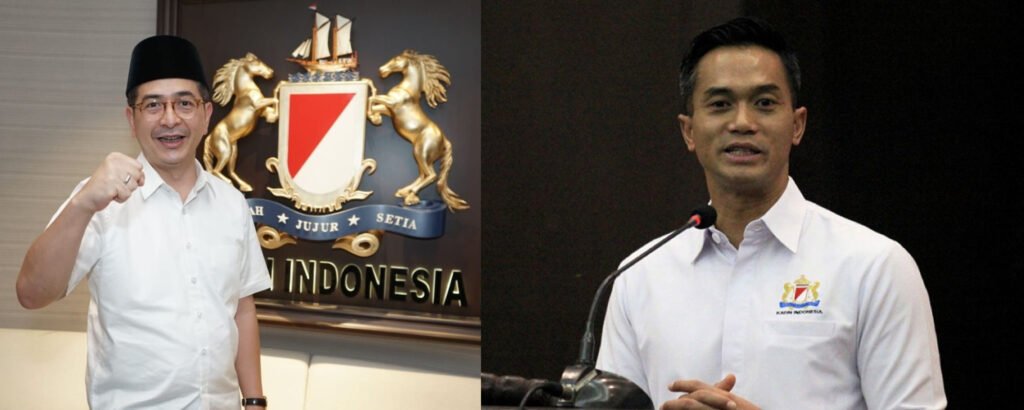The turmoil over the leadership seat of KADIN, Indonesia’s Chamber of Commerce and Industry, has raised concerns among many parties, from entrepreneurs and investors to labor unions.
As a partner of the government in formulating various economic policies, this internal conflict is considered to be able to cause confusion in Indonesia’s business scheme. What is really happening? Will it affect the Indonesian economy as a whole?
Past Leadership Battles Resurface
The leadership dispute in KADIN, Indonesia’s Chamber of Commerce and Industry, began with a special meeting on September 14, 2024, at the St. Regis Hotel in Jakarta. During this meeting, Anindya Bakrie was elected as the new chairman. However, KADIN is still officially led by Arsjad Rasjid, who had been elected for the 2021-2026 term.
Arsjad argued that Anindya’s appointment violated KADIN’s rules because the meeting didn’t have enough members present to be valid. He claimed that 21 provincial KADIN chapters rejected the results. On the other hand, Anindya’s team claimed that 28 provincial chapters (out of 34) participated, making the appointment valid in their view.
Politics also fueled this internal conflict. Arsjad was the head of the national campaign team for the presidential candidate pair Ganjar Pranowo and Mahfud MD in the February 2024 election. Meanwhile, Anindya is the eldest son of Aburizal Bakrie, a senior businessman who is a member of the Advisory Board of Golkar, the political party supporting Prabowo Subianto and Gibran Rakabuming.

It’s also noteworthy that Arsjad and Anindya have been competing for the chairman’s position since the 2021 KADIN National Congress. Anindya’s camp argued that their 15 years of experience as vice chairman gave them an edge.
However, Arsjad, who was only active for a few years in KADIN at that time, is close to many people in the government, and he is the one who eventually won the chairman’s seat by acclamation.
“KADIN and the government must work together for economic growth. Back then, there was a consensus with President Jokowi that Anindya became the Chairman of the Advisory Council while Arsjad took the helm of KADIN,” said Mulyadi Jayabaya, who served as the vice chairman of KADIN during Arsjad’s leadership.
Counterproductive to Industries
Inevitably, the dual leadership in KADIN immediately raised widespread concerns among many stakeholders. For example, economic observers are worried that this conflict will make it more difficult to achieve investment targets and hinder national strategic projects.
One labor union also expressed concerns that this polemic could have a broad impact on the labor sector, especially in wage discussions where KADIN is a strategic partner of labor in industrial relations.
And most importantly, KADIN, which has been around since 1968, is a bridge for business actors to convey their aspirations in determining government policies. KADIN also bridges investors with the government, especially for business permits and incentives. So economic observers believe that prolonging the resolution of this leadership issue will certainly be counterproductive to efforts to grow the industrial sector.
However, observers also believe that whatever the outcome of this internal conflict, KADIN will remain solid and focused on advancing the economy.
“Whatever the decision, KADIN will surely return to being solid. Because, in general, businessmen prefer a pragmatic approach,” said Piter Abdullah, Executive Director of the Segara Research Institute, to journalists in Jakarta, September 19, 2024.
Consistent Support for Business and Investment
While the leadership dispute may seem concerning, it’s important to note that this conflict is primarily an internal matter. KADIN, while influential, is not the sole governing body for investment and business in Indonesia. The government’s ministries and agencies have consistently demonstrated their commitment to supporting investment and business.
Numerous policies and initiatives have been implemented to create a conducive business environment, including tax incentives, streamlined regulations, and infrastructure development. These efforts are ongoing and unaffected by the KADIN leadership crisis.
An example is the second phase of development of the new capital city in Kalimantan, which has started involving foreign investors with a total of USD 42 million in funding from China and Australia.
According to President Jokowi, about 300 letters of intent (LoIs) have been received from foreign investors for projects in the new capital city.
However, Indonesia’s Minister of National Development Planning, Suharso Monoarfa, stated that only around 80 foreign companies will be involved in the second phase of the new capital’s development. Investors in the new capital are incentivized with various tax relief and land rights guarantees, including the Right to Cultivate which can last up to 190 years.
Partner with Seven Stones Indonesia, where we also provide consistent support to keep your business fully compliant with Indonesian laws and regulations. Our team brings years of experience, a strong network of connections, and a deep understanding of the local legal landscape.
We handle the complexities of legal compliance. provide the expertise and support needed for long-term success in Indonesia. Reach out to Seven Stones Indonesia now to discuss your business needs and see how we can help you.

















